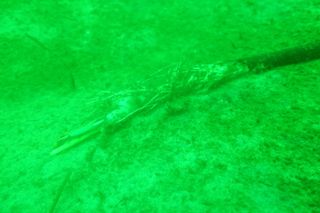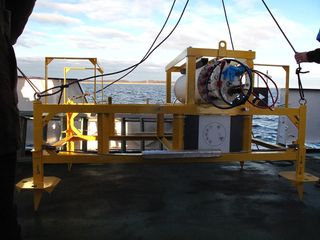Mysterious Underwater Thieves Steal 1,600-Lb. Observatory from Bottom of Baltic Sea
It suddenly went silent on Aug. 21.

A research station the size of a small car has completely vanished from the bottom of the Baltic Sea.
And it looks like the station's been stolen.
The observatory, which was run by the GEOMAR Helmholtz Centre for Ocean Research, consisted of about 1,630 lbs. (740 kilograms) of equipment. Its job was to collect environmental data from the ocean floor and transmit that information to researchers on land.
But on Aug. 21, the station stopped sending data.
At first, researchers suspected something had gone wrong with the transmission. But divers went to check on the site and found that the entire Boknis Eck Observatory had disappeared, with just a "shredded" power cable left behind.
Related: The 20 Most Mysterious Shipwrecks Ever
The missing observatory had been in a restricted water area 1.2 miles (1.8 kilometers) off the coast of Kiel in northern Germany, not far from the Danish border, the BBC reported. No storm, tide or large animal could have moved the station, GEOMAR said in a statement.
Sign up for the Live Science daily newsletter now
Get the world’s most fascinating discoveries delivered straight to your inbox.

Police are investigating, and GEOMAR asked that any members of the public who might have seen something report it. The station consisted of two heavyweight racks; one carried the power supply, while the other carried sensors. Those instruments were used in an environmental data-collection project that's been going on since 1957. The project has maintained a continuous record of key ocean variables, including temperature, salinity and levels of nutrients, oxygen and chlorophyll.
The station cost 300,000 euros (about $330,000), GEOMAR said. But the lost data is "priceless," the research center said.
- Stunning Photos Capture Eerie Underwater Shipwrecks
- In Photos: Searching for Shackleton's 'Endurance' Shipwreck
- Shipwrecks Gallery: Secrets of the Deep
Originally published on Live Science.

